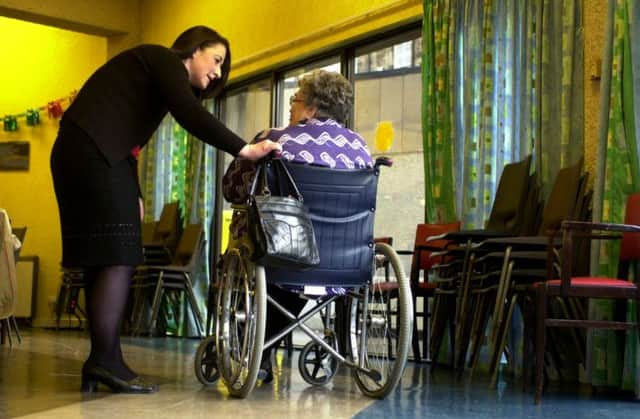Power of attorney not just for the aged


IN A society with a rapidly ageing population, the benefit of Power of Attorney (POA) is gradually being understood.
In granting power of attorney, an individual gives someone else (usually a spouse, adult child or sibling) the legal right to act on their behalf should they become mentally and/or physically incapacitated through accident or illness. Power of attorney is especially taken up by people in the later stages of life who want to ensure their wishes continue to be carried out even if their mental faculties diminish through, for example, dementia.
Advertisement
Hide AdAdvertisement
Hide AdIt could be argued that power of attorney makes sense for anyone with family responsibilities because though usually associated with the ageing process, the loss of mental capacity – either permanently or for a temporary period – can happen to anyone at any time. This is particularly true of certain persons who may consider themselves still to be in the prime of life: owners of Small to Medium Enterprises (SMEs) and, in particular, sole traders.
All businesses need to have robust continuity plans so that if the owner or senior director is suddenly not available to make decisions, the business keeps functioning, customers’ needs are met and financial catastrophe avoided.
In small business or sole trader situations, problems associated with the inability of the owner to function are often overlooked. A partnership will have at least one other “executive”, meaning there will be someone to take responsibility for the operation. But for the sole trader or owner-managed company, wholly dependent on the knowledge and effort of one individual, even a temporary period of incapacity could spell disaster.
Take the example of Bill, who has operated a profitable office services business for a good few years. While he has a good team who handle all the routine work, Bill is undoubtedly “the boss” and when something happened to make him incapable of making decisions, the future of the business looked to be in jeopardy.
Without warning, Bill suffered a massive heart attack one morning as he made his way from the car park to the office. He survived, but was told his recovery would take at least three months. This, of course, presented him with a huge dilemma. Even should he heed medical advice and take a complete rest for three months, he still could have another heart attack brought on by worrying about what was happening at the business in his absence. If he ignored the advice and returned to work to keep things going, then he was extremely likely to have another heart attack.
Fortunately neither came about. A few years ago Bill was astute enough to consider what disaster might befall his business were something like this to happen – not just its effects on himself and his family but the employees who would very likely lose their jobs – as a result of the business descending into chaos.
So Bill set about putting in place a process which – in the event of a heart attack or some other serious medical emergency – would put the business in the hands of a competent, and above all trustworthy person until his recovery was complete.
That solution, he discovered, could be realised by having a power of attorney in place. Nominating an appropriate individual as his attorney meant Bill was effectively setting up a recovery/continuity plan for a period of absence which he hoped would never occur but legislated for it on the grounds that it was better to be prepared for any and every eventuality. Therefore, in the event of not being able to function as normal, Bill can now call on someone with the legal authority to operate the business on his behalf.
Advertisement
Hide AdAdvertisement
Hide AdThe form and content of this type of power of attorney largely differs from the typical “old age” version, but would still need to be capable of being registered with the Public Guardian to ensure that it could continue to be used in the event of complete incapacity.
Since granting power of attorney, Bill’s business has not only weathered the recessionary storm but he is out pitching for, and picking up, new contracts. He still has sleepless nights about the problems that come with running a business but he is relaxed in the knowledge that whatever life throws at him personally, thanks to granting power of attorney the company will continue to function – making him a happier, more productive, boss. • Scott Williamson is a partner with Blackadders www.blackadders.co.uk
SEE ALSO